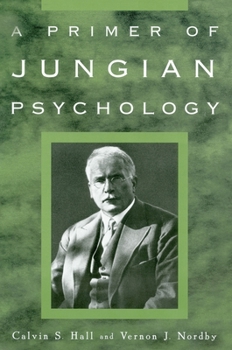A Primer of Jungian Psychology
Select Format
Select Condition 
Book Overview
The contributions of Carl Jung to understanding of the human psyche are immense. Starting as Freud's most famous disciple, Jung soon broke away from his mentor to follow his own lines of investigation and discovery. Many of Jung's ideas are now considered fundamentals in the study of the mind, but other, more controversial theories dealing with the psychological relevance of alchemy, ESP, astrology, and occultism are only now being seriously examined. This condensation and summary of Jung's life and work by two eminent psychology professors is written with deep understanding and extraordinary clarity and, along with its companion volume, A Primer Of Jungian Psychology is essential reading for anyone interested in the hidden depths of the mind.
Format:Paperback
Language:English
ISBN:0452011868
ISBN13:9780452011861
Release Date:January 1999
Publisher:Penguin Publishing Group
Length:144 Pages
Weight:0.32 lbs.
Dimensions:0.5" x 5.3" x 8.0"
Age Range:18 years and up
Grade Range:Grade 12 and higher
Customer Reviews
4 ratings
An Excellent Introduction to Jungian Psychology
Published by Thriftbooks.com User , 18 years ago
Although it may be rather brief, this book does an excellent job with introducing people to the basics of Jungian psychology. For people beginning to learn about Jung's theories, I think this is one of the best starting points, and after reading it I've had a good basis to continue learning more about this subject. It's well-written, easy to understand, provides real-life examples to clarify concepts, and the information is organized in a logical sequence. Altogether it is a wonderful overview.
A Jungian Gem
Published by Thriftbooks.com User , 21 years ago
This book is absolutly wonderfull; it defines all of Jung's major psychological contributions in layman's terms. A very, "to the point" book with minute, clear examples in each area.
A superb summary of Jungian psychology
Published by Thriftbooks.com User , 24 years ago
This is an indispensable book for anyone beginning their studies in Jungian psychology. At 140 pages in length, the text is an easy read with no wasted words and no convoluted passages to unravel. It addresses Jung's entire system and provides succinct, memorable summaries of each concept.The Book is broken up into seven chapters:1. Carl Gustav Jung (biographical background)2. The Structure of Personality (the psyche, conscious, personal unconscious and collective unconscious)3. The Dynamics of Personality (psychic energy and values, the principles of equivalence and entropy, etc.)4. The Development of Personality (individuation, transcendence and integration, etc.)5. Psychological Types (thinking, feeling, sensation, and intuitive)6. Symbols and Dreams7. Jung's Place in Psychology.For more eminently readable Jungian psychology, try Marie-Louise von Franz.
A concise and practical introduction to Jung's psychology.
Published by Thriftbooks.com User , 26 years ago
This book is so clearly written that reading it becomes a numinous experience. Dr. Jung's unique knowledge of universal themes in myths, tales, and dreams, and of alchemy, and Eastern philosophy brings, together with the scientific Western approach, new elements to the understanding of the human psyche. Consequently, I would say that this analytic psychology's chief aim is individuation and self-realization. Hall and Nordby address this matter very lucidly showing the importance of transcendence and intergration in the process of individuation. Indeed, this process is one of self-knowledge, "Education is drawing out from the person, something that is already there in a nascent state, and not the filling up of an empty container with academic knowledge" (p.83). Altogether, this book is a cromprehensive work addresing concepts such as; the collective unconscious, archetypes, complexes, the shadow, introversion and extroversion, and it even includes a brief description of synchronicity. Undoubtedly, it is worth reading,






